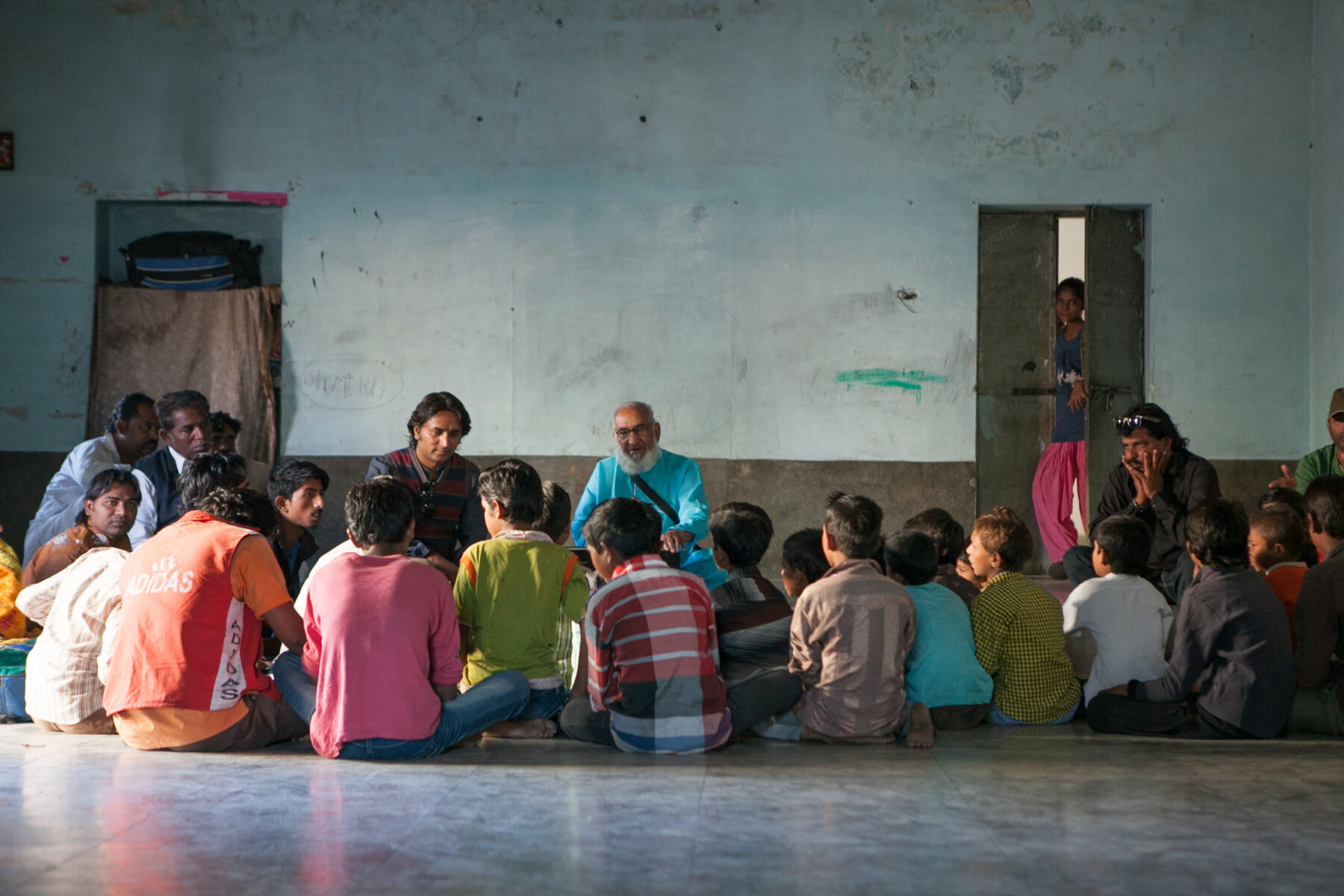Nawab Khan lives in a city of stories, the color of the sea. Jodhpur – India’s Blue City, or Sun City, as it’s sometimes known – is home to buildings that have stood for centuries, their periwinkle walls a token of an era past.
Today, though, Jodhpur has swelled (it’s now a highly-trafficked tourist attraction, as well as Rajasthan’s second-largest metropolis), but it remains home to a wealth of time-honored traditions. So it’s fitting that it was in this city that Nawab Khan entered the world, destined to follow in his family’s own deeply-planted footsteps.
Unwritten Sounds of the Blue City
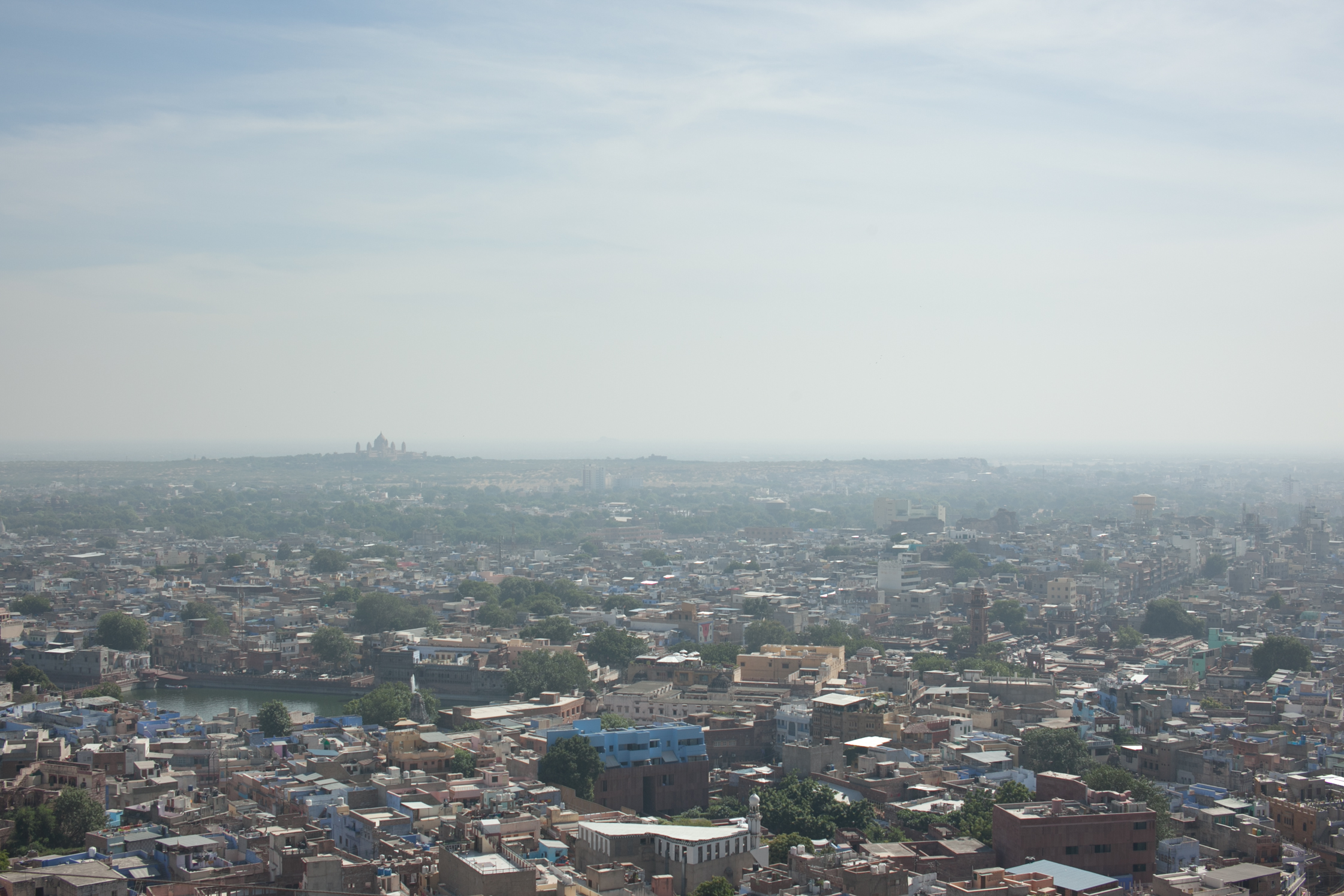
A seventh generation classical musician, Nawab found his musical beginnings at the age of six, focusing first on his family’s chosen instrument, the sarangi, before bringing his own unique style to the many-stringed santoor. To this day, people often tell him his technique differs from what they’re used to hearing – these are observations he’s come to take as compliments.
These days, Nawab divides his time between being a musical therapist; a member of the meditation band The Mantra; and a teacher at a makeshift school for local children and young adults who might not otherwise learn the fundamentals (or, as he calls it, the “alphabet”) of classical music. It’s there, alongside his uncle, that he’s able to pass on his painstakingly acquired knowledge of tradition to eager and impressionable ears. On any given day, he’s likely to be found leading a chorus of youthful singers, hair neatly combed, hands gesturing wildly – youths in whose lives he hopes to make a difference. He’ll be listening attentively, nodding as their voices lift. And when the song fades to a finish and his students look to their teacher, Nawab, at the center, will applaud.
This portrait is part of our ongoing collaboration with ZEIT Online who presents a special curation of our images on ZEIT Magazin Online.
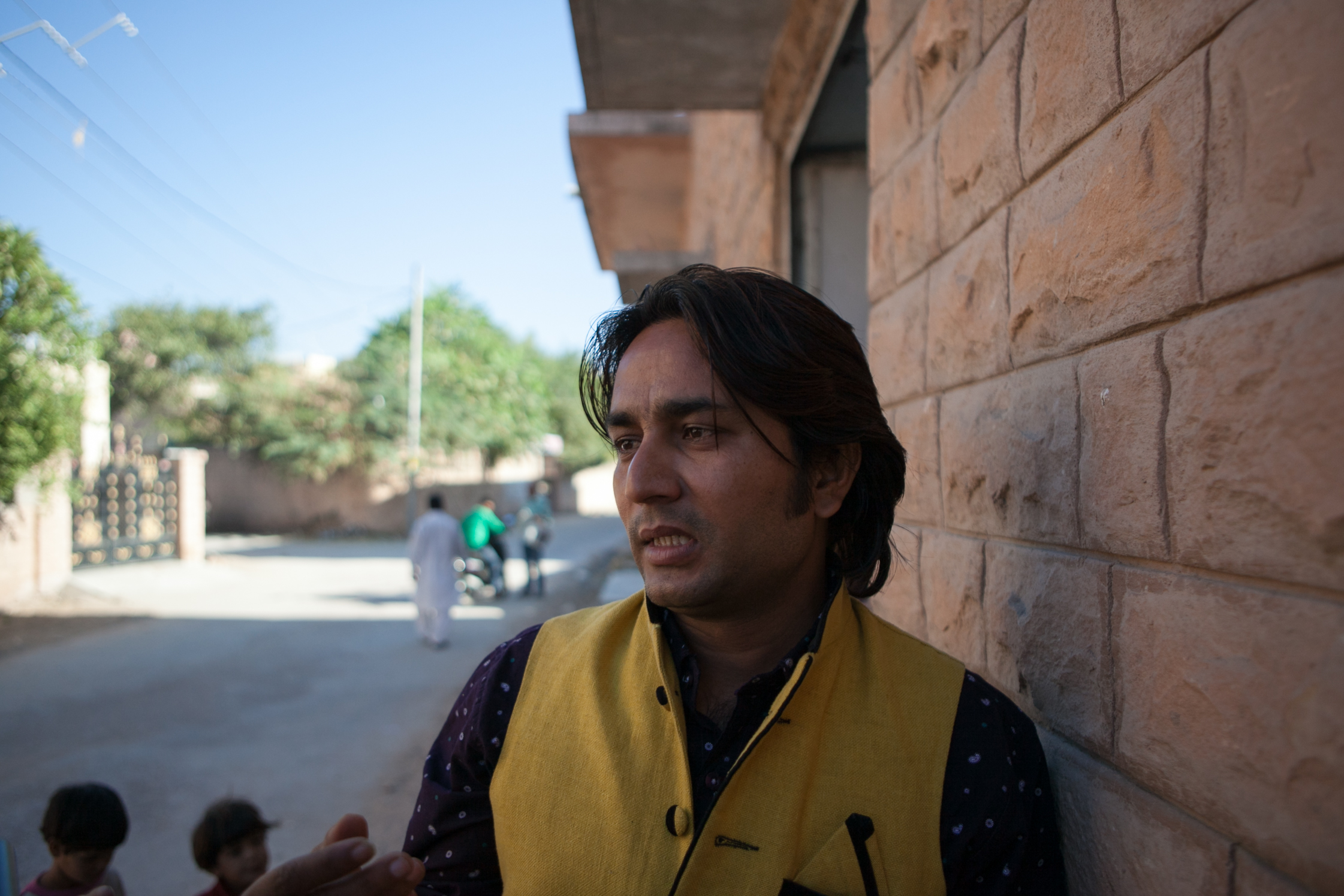
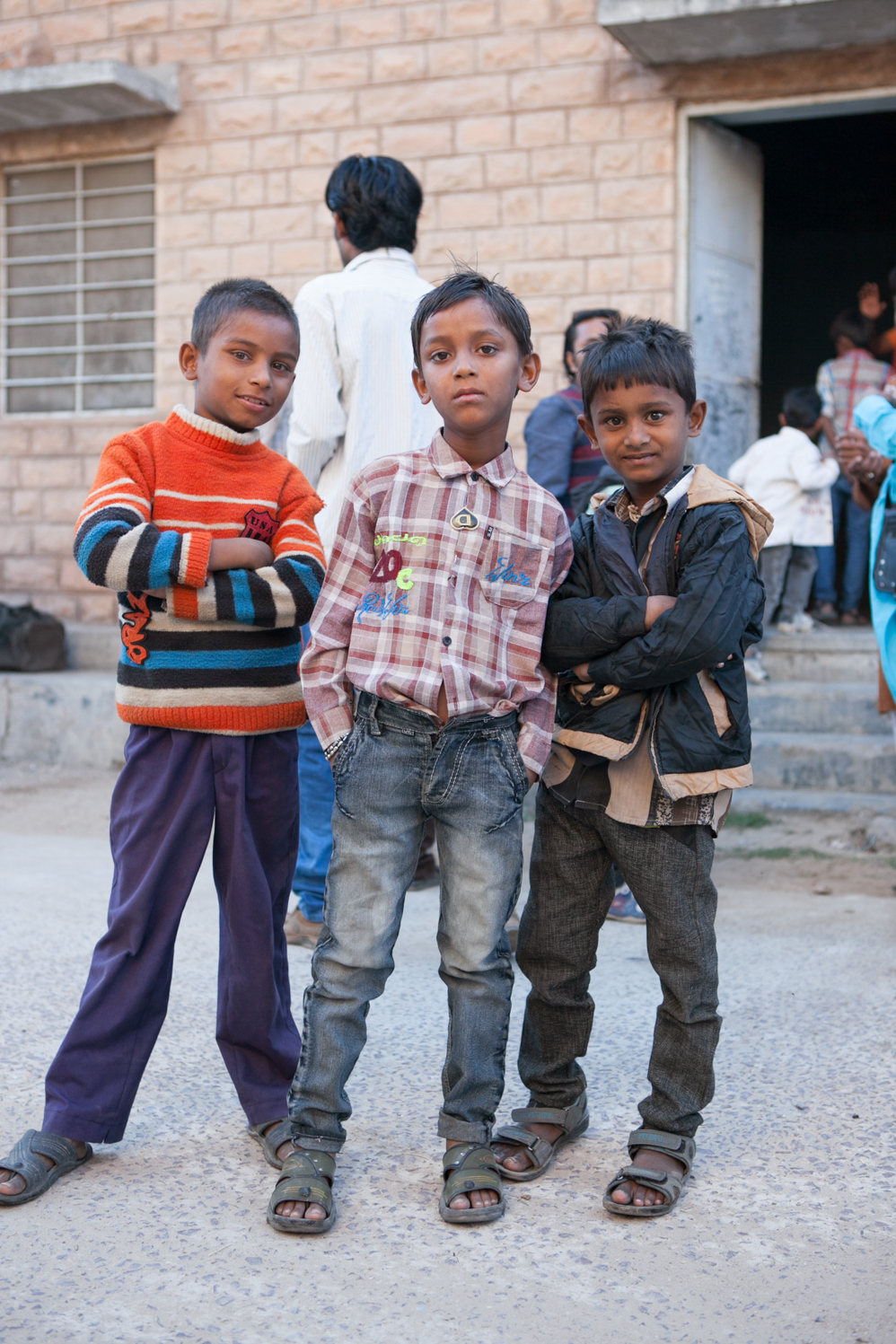
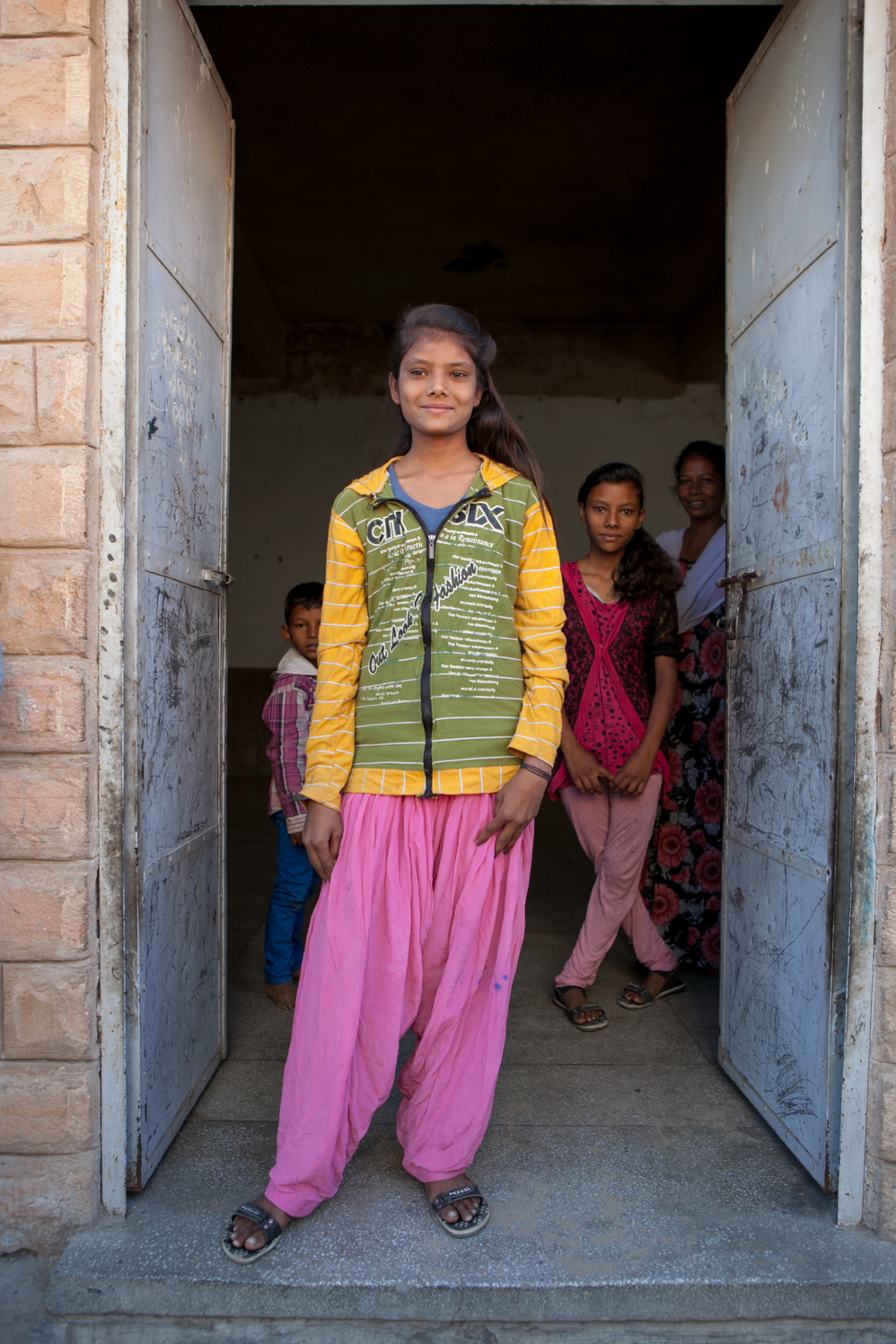
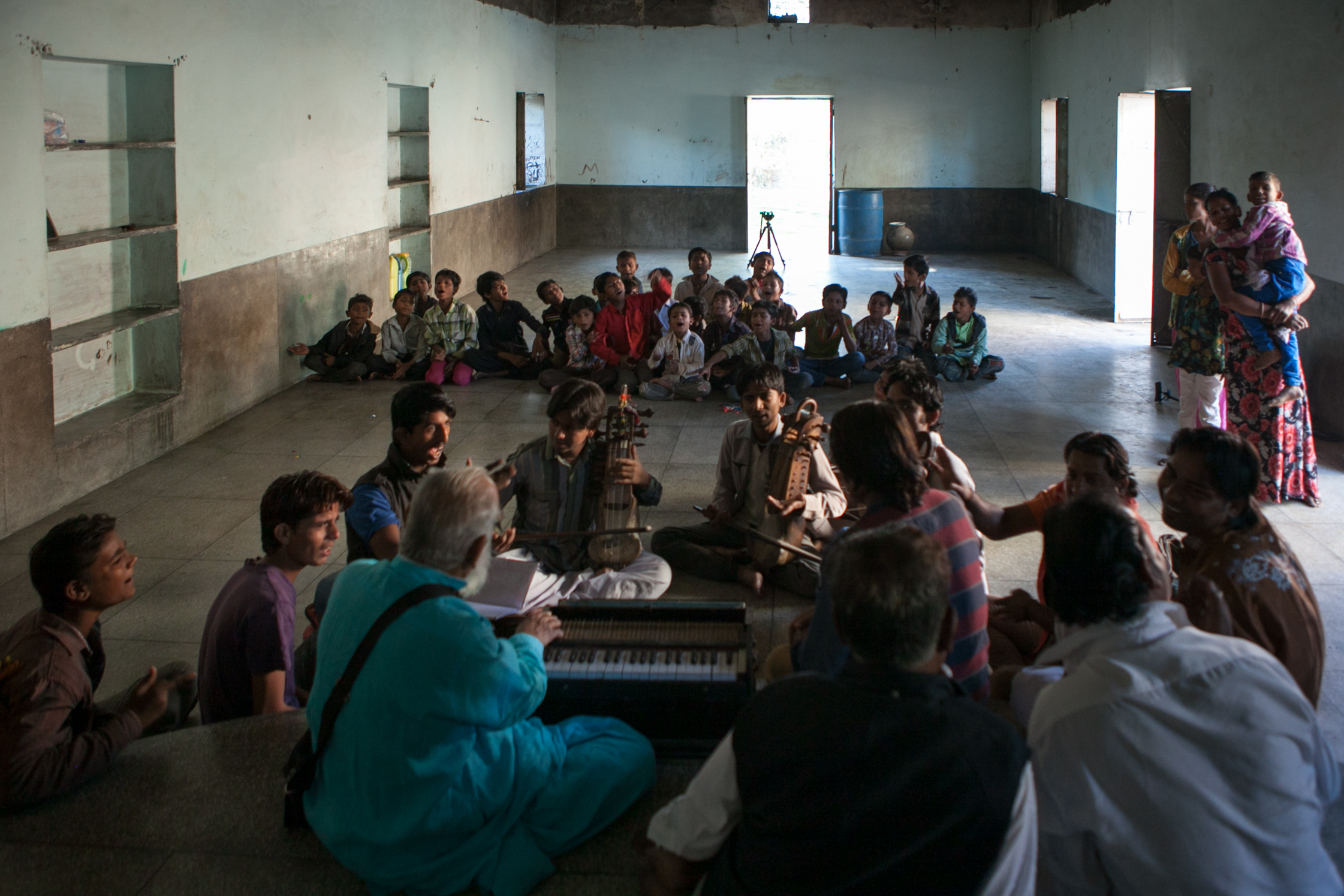
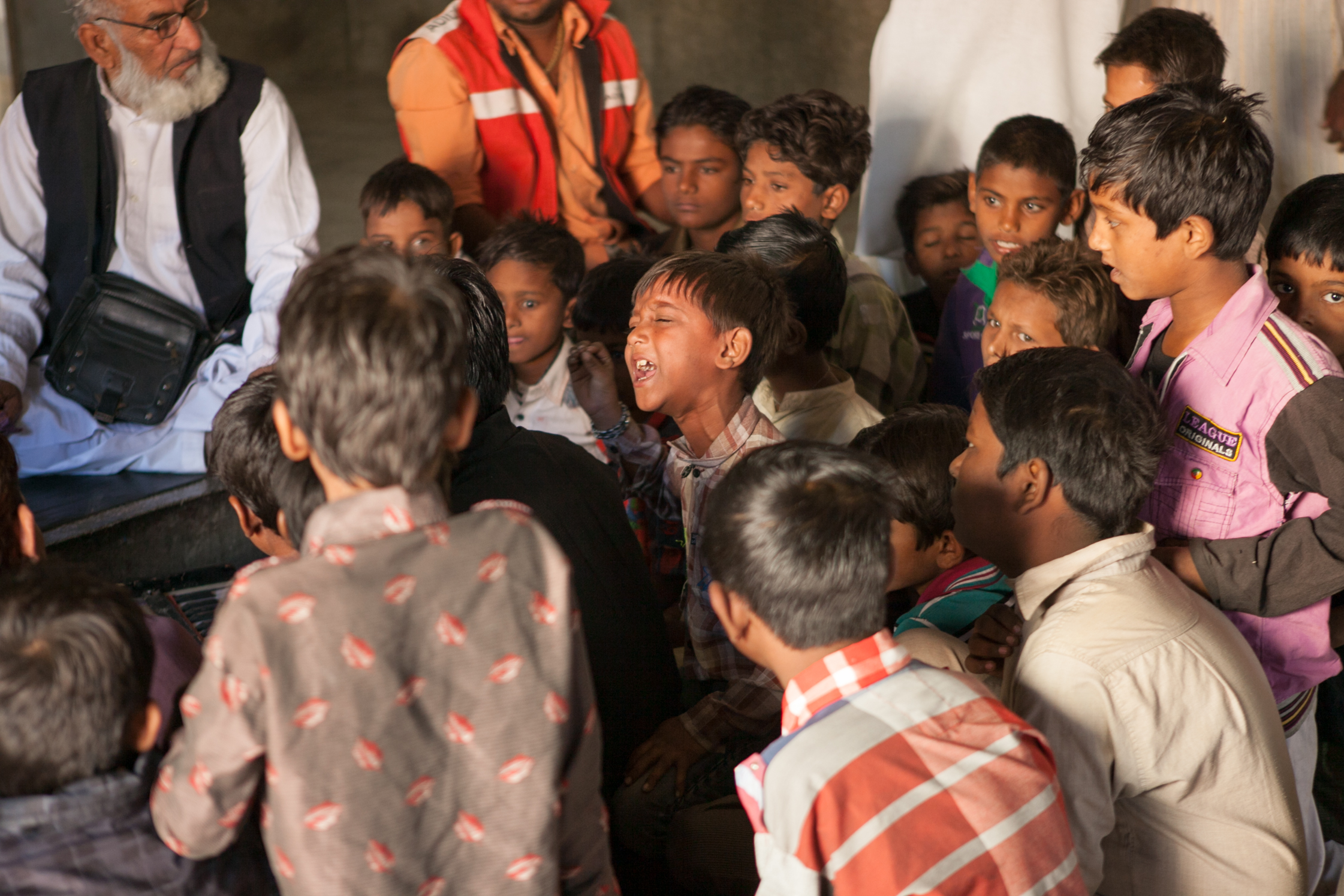
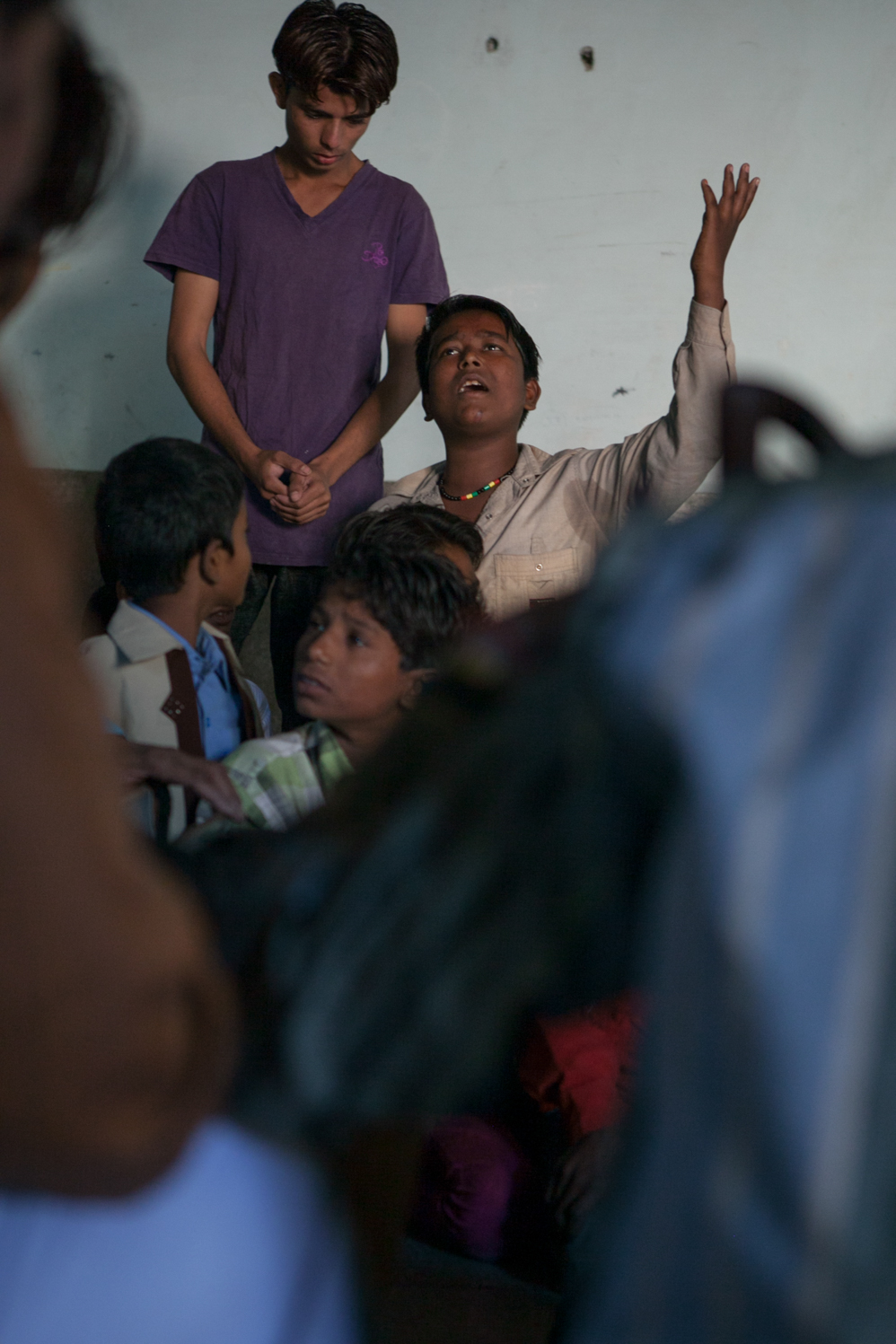
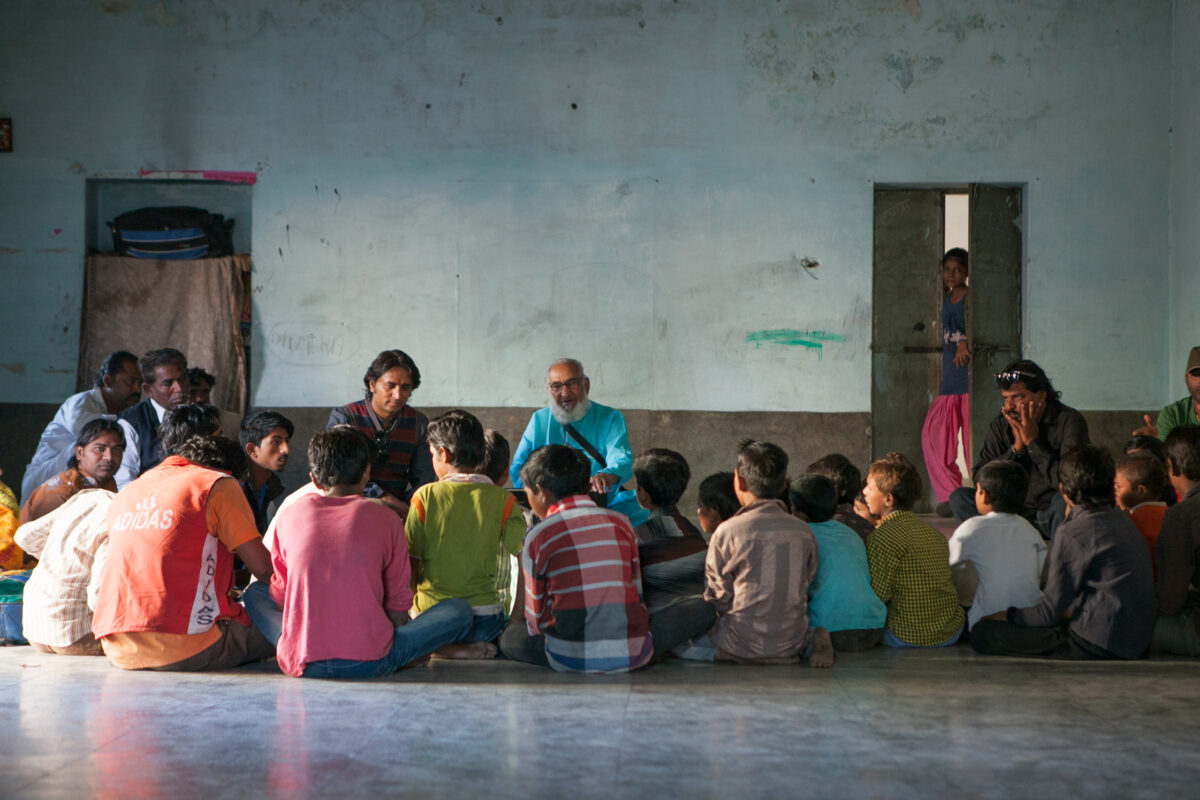
“They have the music in their blood. I just have to give them strength to recognize the power of music.”
-
You come from a long line of classical musicians. Do you have memories of your family members playing music when you were a child?
I have memories of my uncle, who is a famous musician, because I used to travel with him to concerts in India and some European countries. Sometimes I performed with him. I remember one very important concert where everybody in the row where I was sitting was crying. That really touched me. I had the feeling that our traditional music had a very strong soul. That’s why I try to study the theoretical part a lot, the meditative part of it. I read a lot of books. I’ve gone to a lot of music therapies. I completed a clinical degree. I’m using all of that experience in my music now.
-
Tell us about the community you’re working within. It’s a poor community, but they’ve produced a lot of famous musicians. What is its background?
When I came back to Jodhpur, I found that there were thousands of musicians living here. They’re very talented, but their living standards are low. There is also a lot of competition, so there is not much work. I knew the problem, and I thought I should start with them – they are my people – so I tried to convince them to keep musical traditions alive: learn this music, teach your kids, and you’ll get work.
Starting out, we had five students, but gradually, the numbers increased. When the children play, they sing the songs and the other children ask, where did you learn that? So like that, the other kids come and learn this type of music, too. Now we have more than 25 regular students, and sometimes 35 or 40 come. We start teaching them classical vargas. They are already very good, so they catch on to what we teach them very, very fast. They have the music in their blood. I just have to give them strength to recognize the power of music.


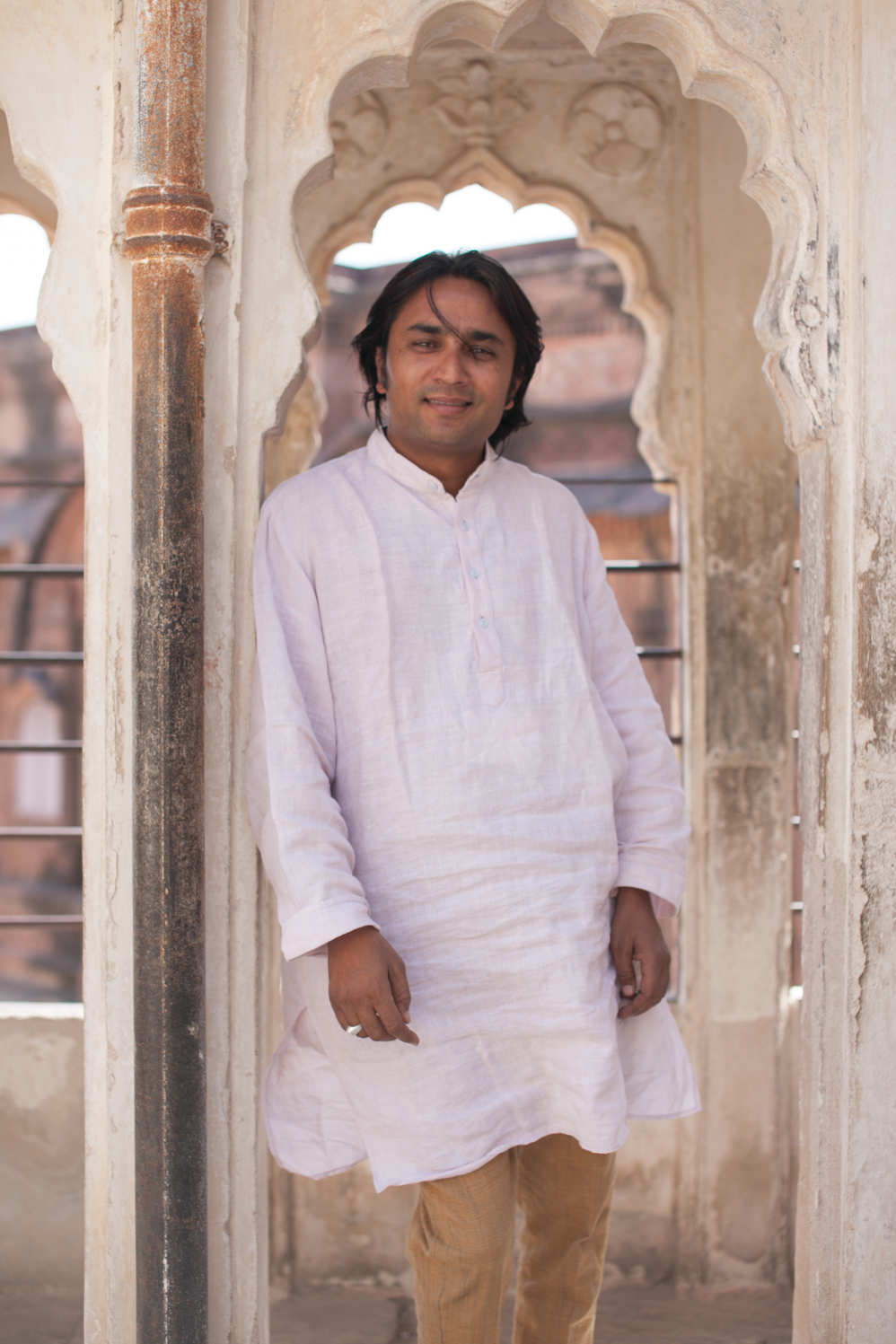
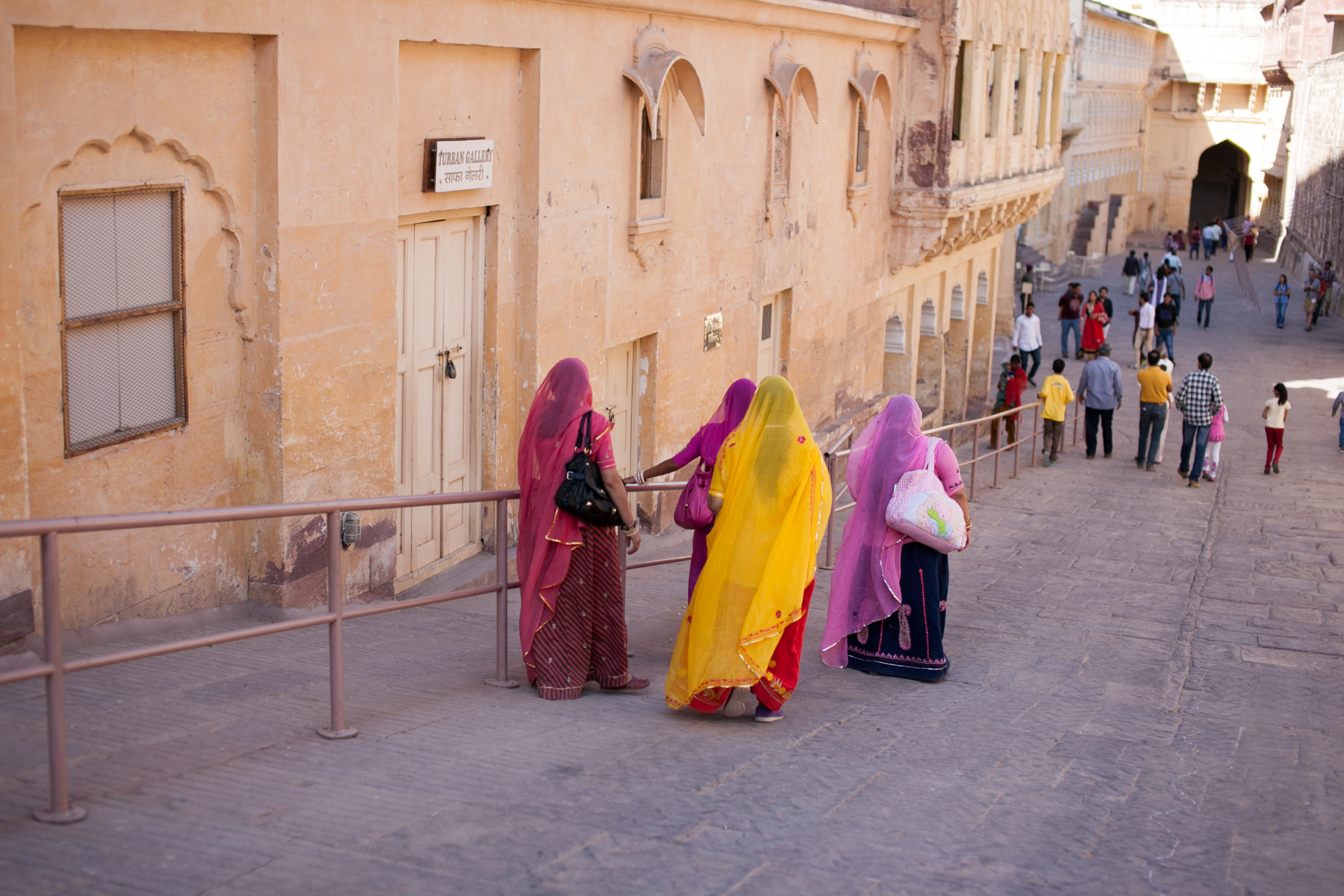
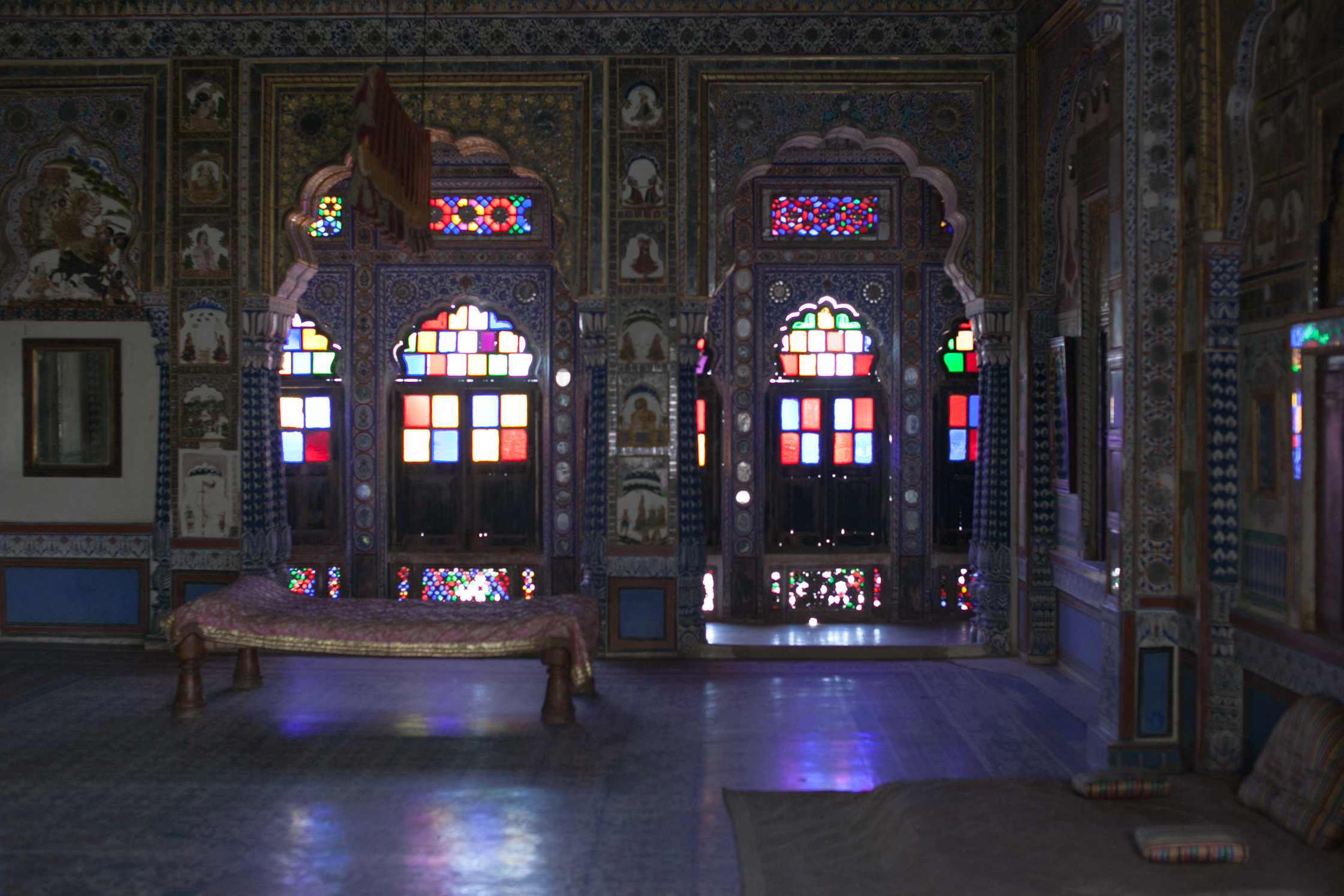
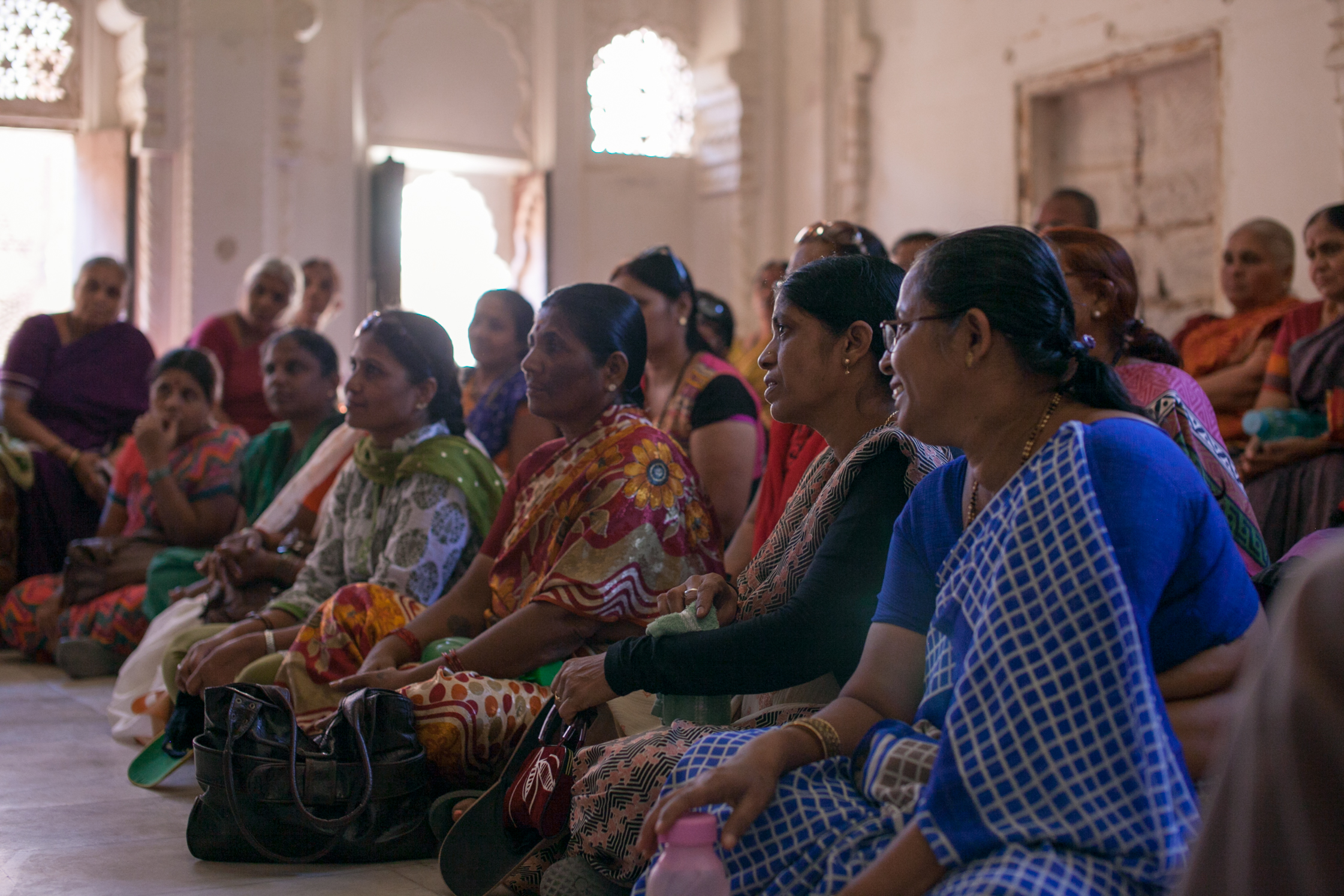
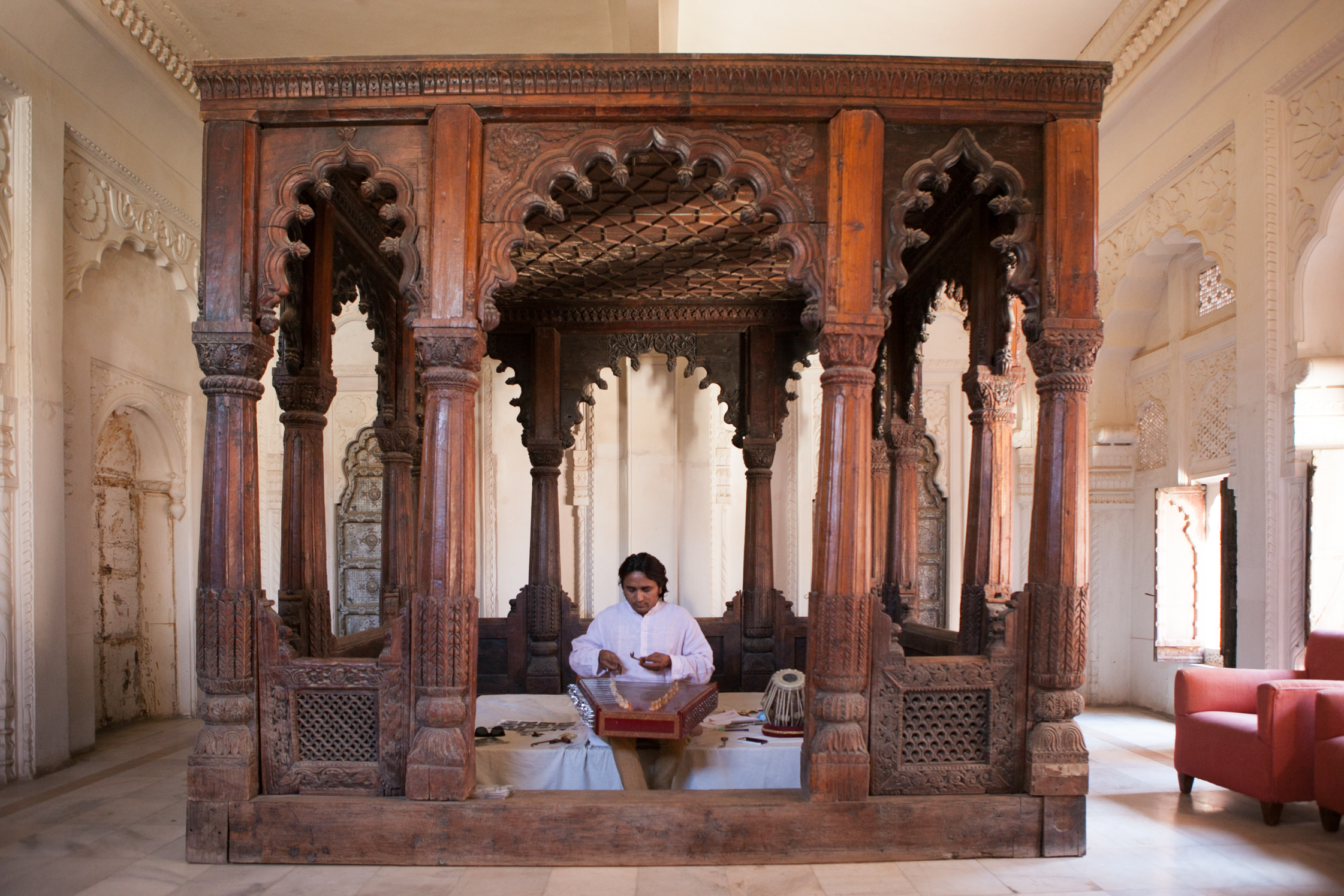
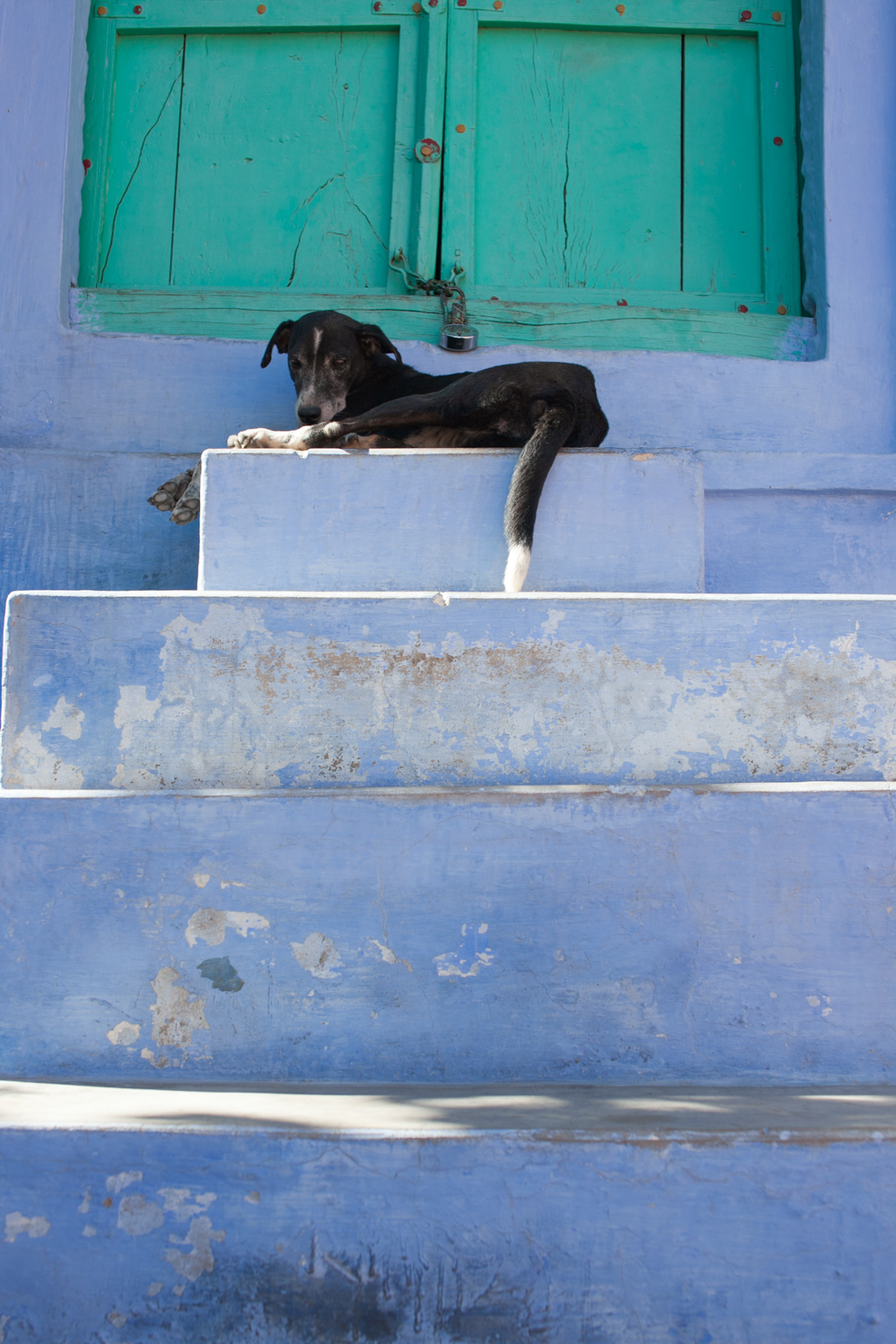
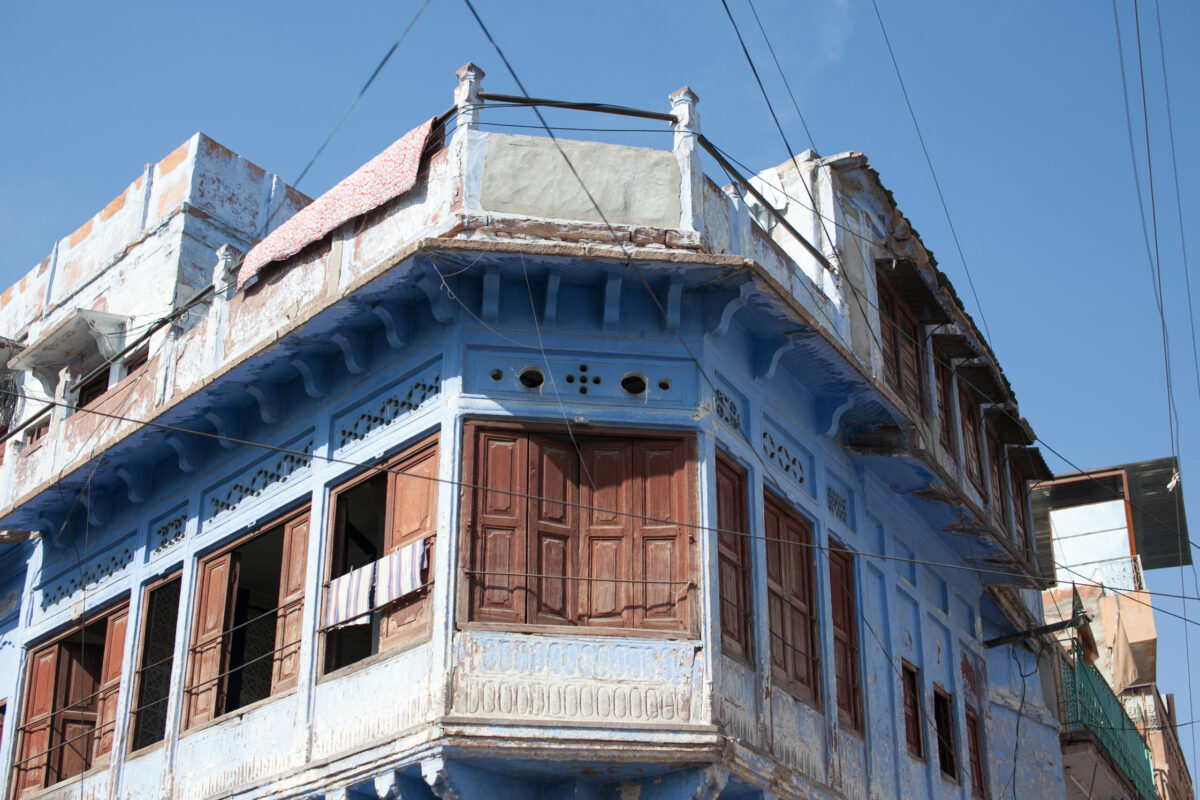
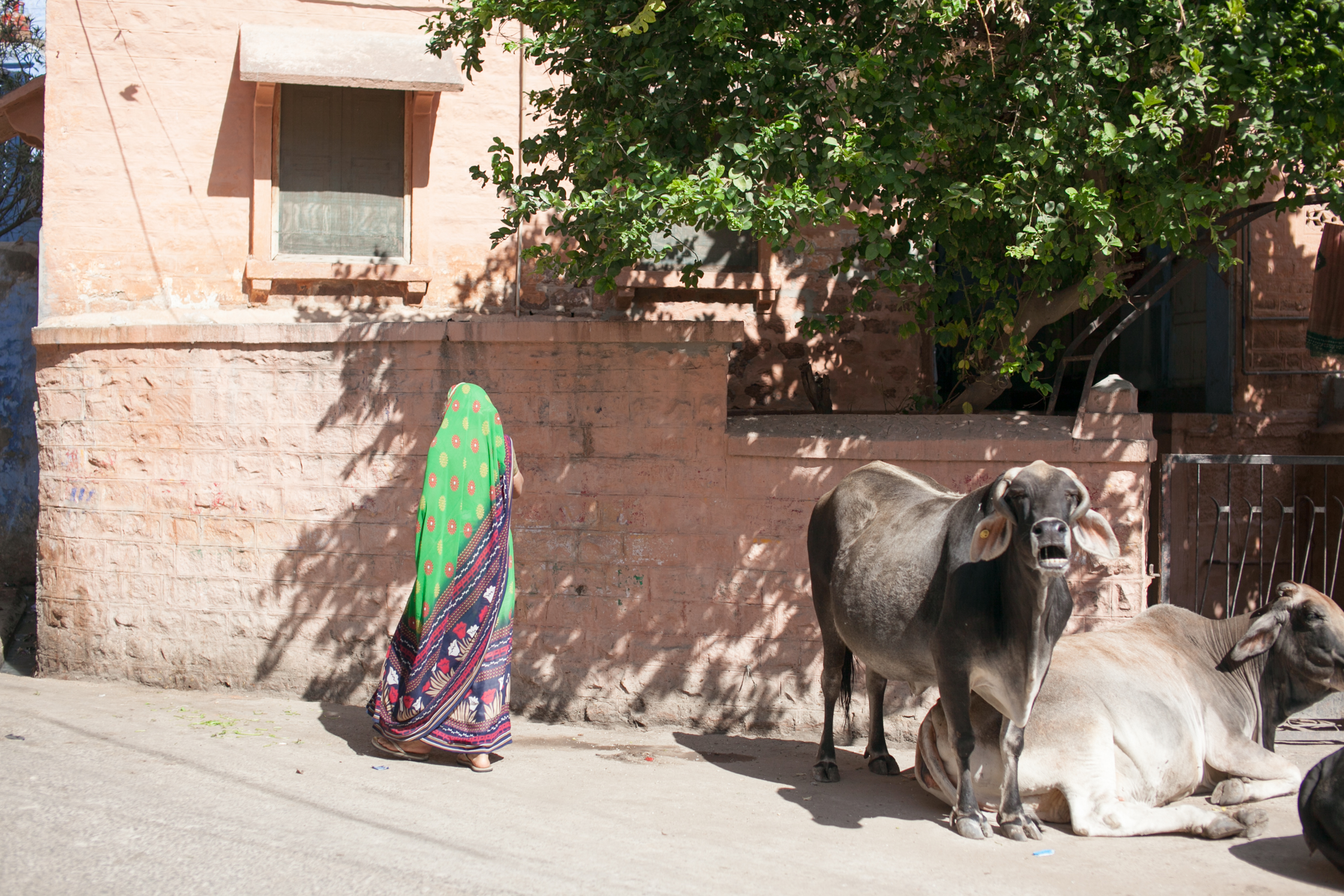
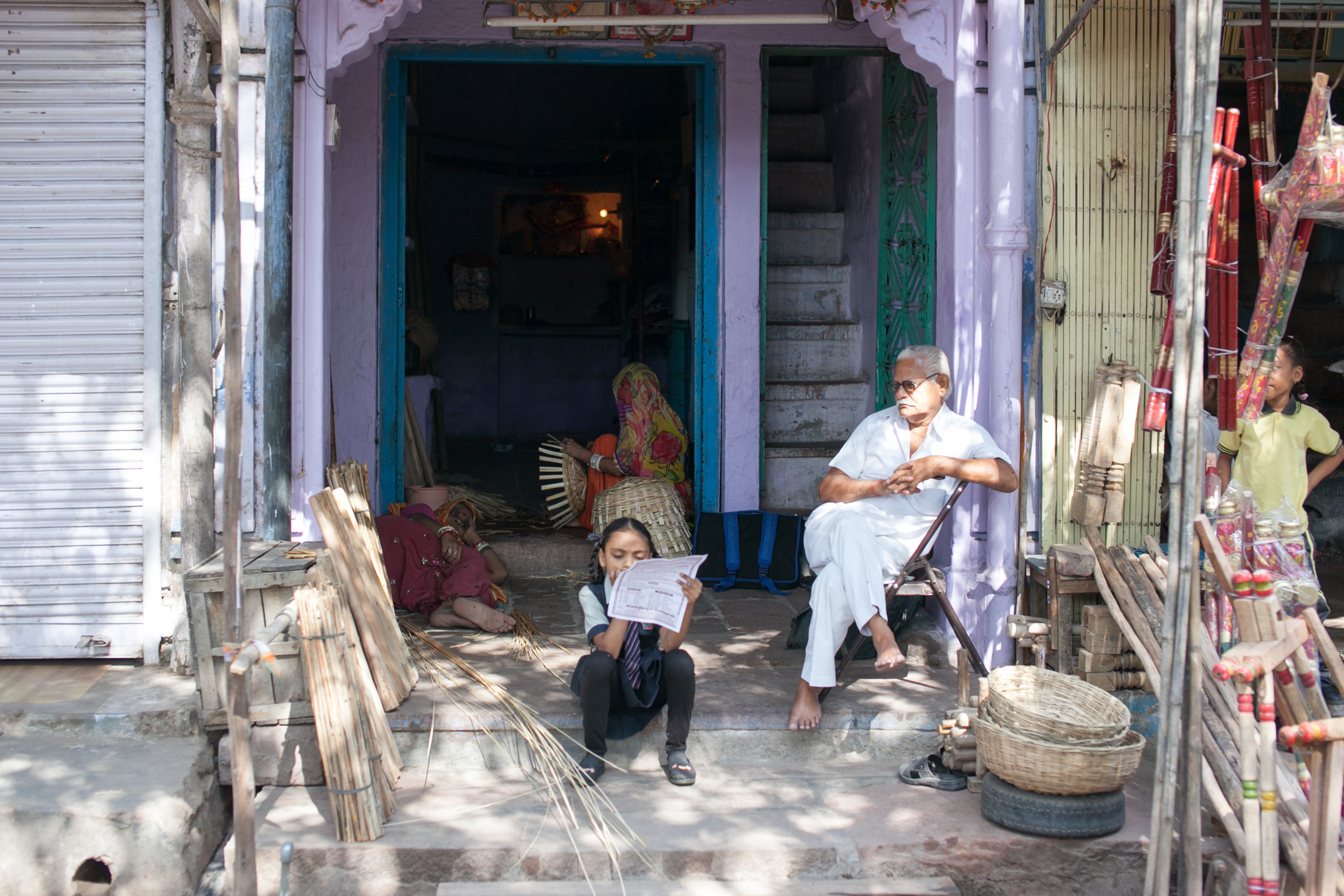
“My goal is to make people strong enough to fulfill their dreams.”
-
In your opinion, is the Indian classical music tradition a dying art form?
Young kids want to learn the Bollywood things, or guitar, or other western instruments. They don’t want to go for a traditional instrument, because on television or on radio they listen to Bollywood and electro music. I’m not opposed to those things, but they should know the real essence and purity of traditional music. They should have a knowledge of it, so when they are asked to play pure Raaga, they can play, they can sing.
-
How do you think the lives of these children has changed since you started teaching them classical music? How do you think it makes them feel?
Every day when I meet them, I feel a different energy. They’re very innocent kids; they aren’t aware of anything that’s happening in their lives. In the beginning, they just came here to see me, expecting gifts or chocolate or something like that. And now they also expect me to teach them another song, because they feel like heroes when they go to the other kids in the society and sing in front of them.
My goal is not to be very popular, or very famous, or to make lot of money with music. My goal is to make people strong enough to fulfill their dreams. That’s my idea.
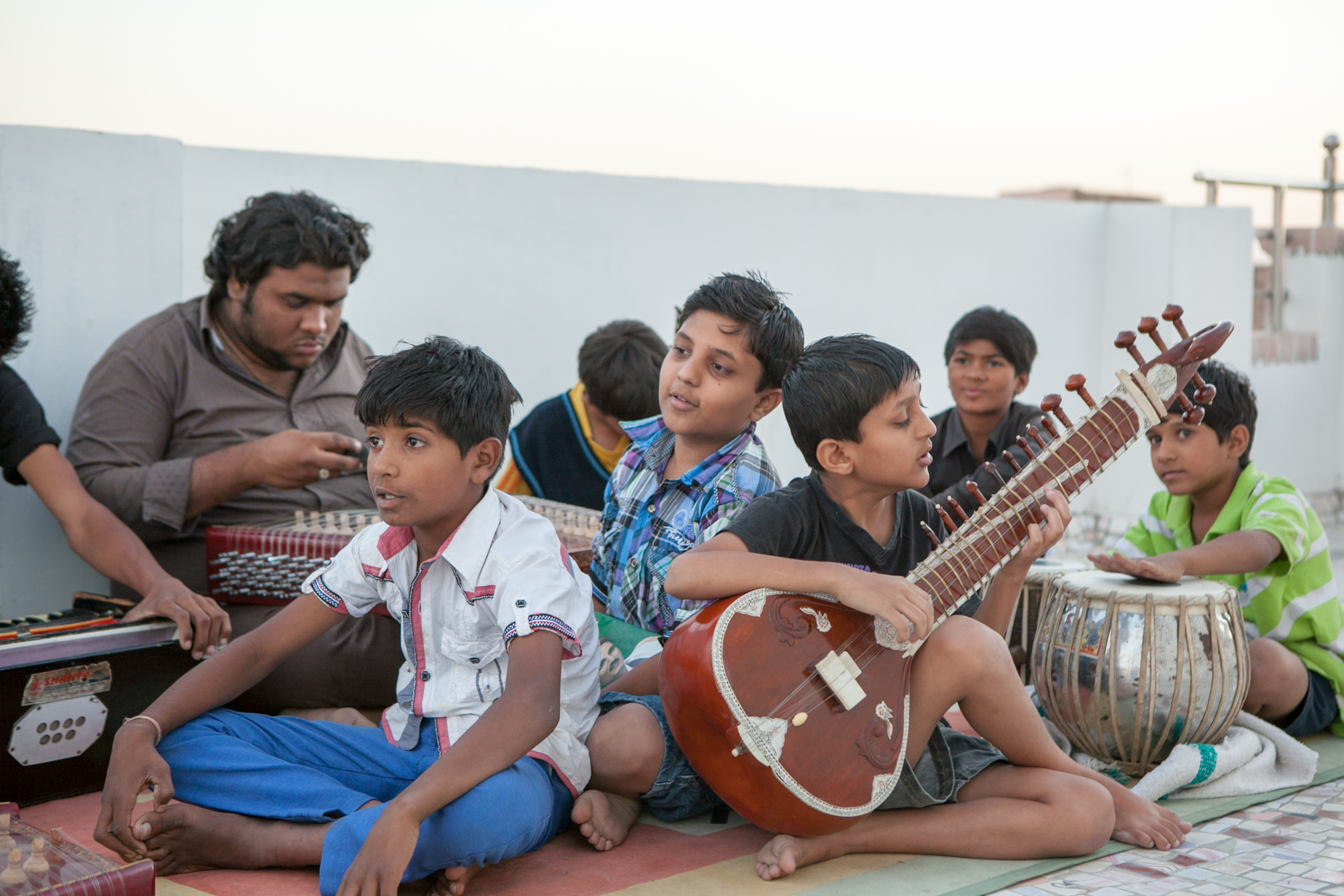
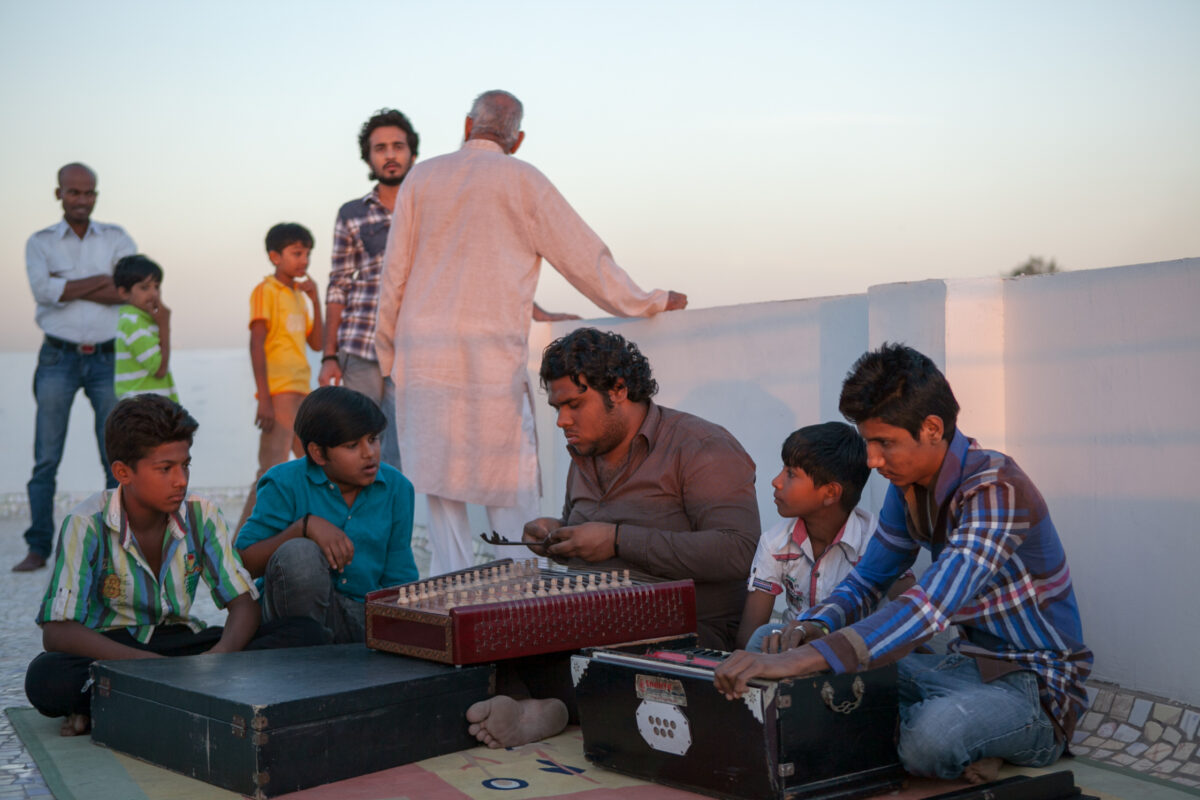
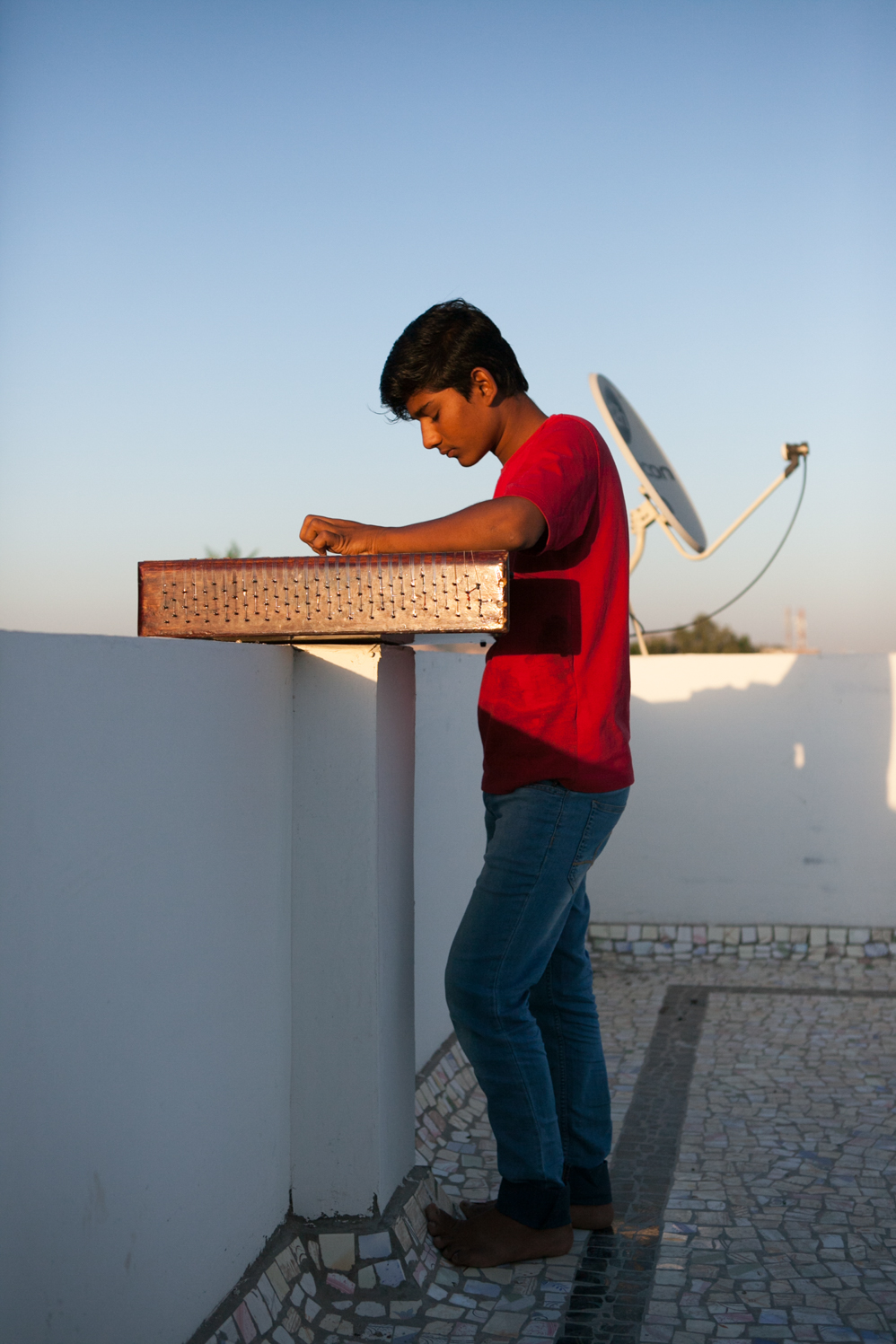
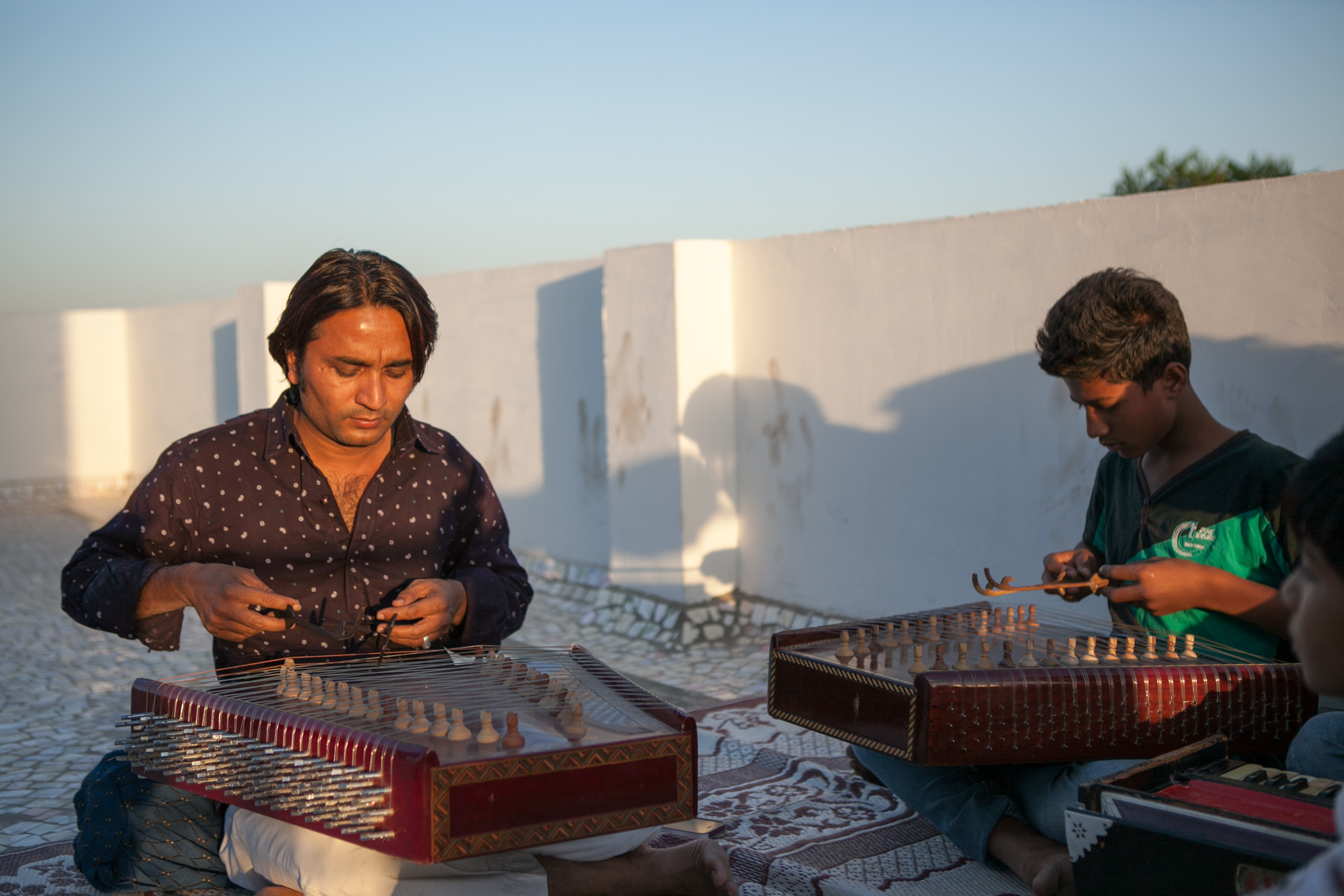
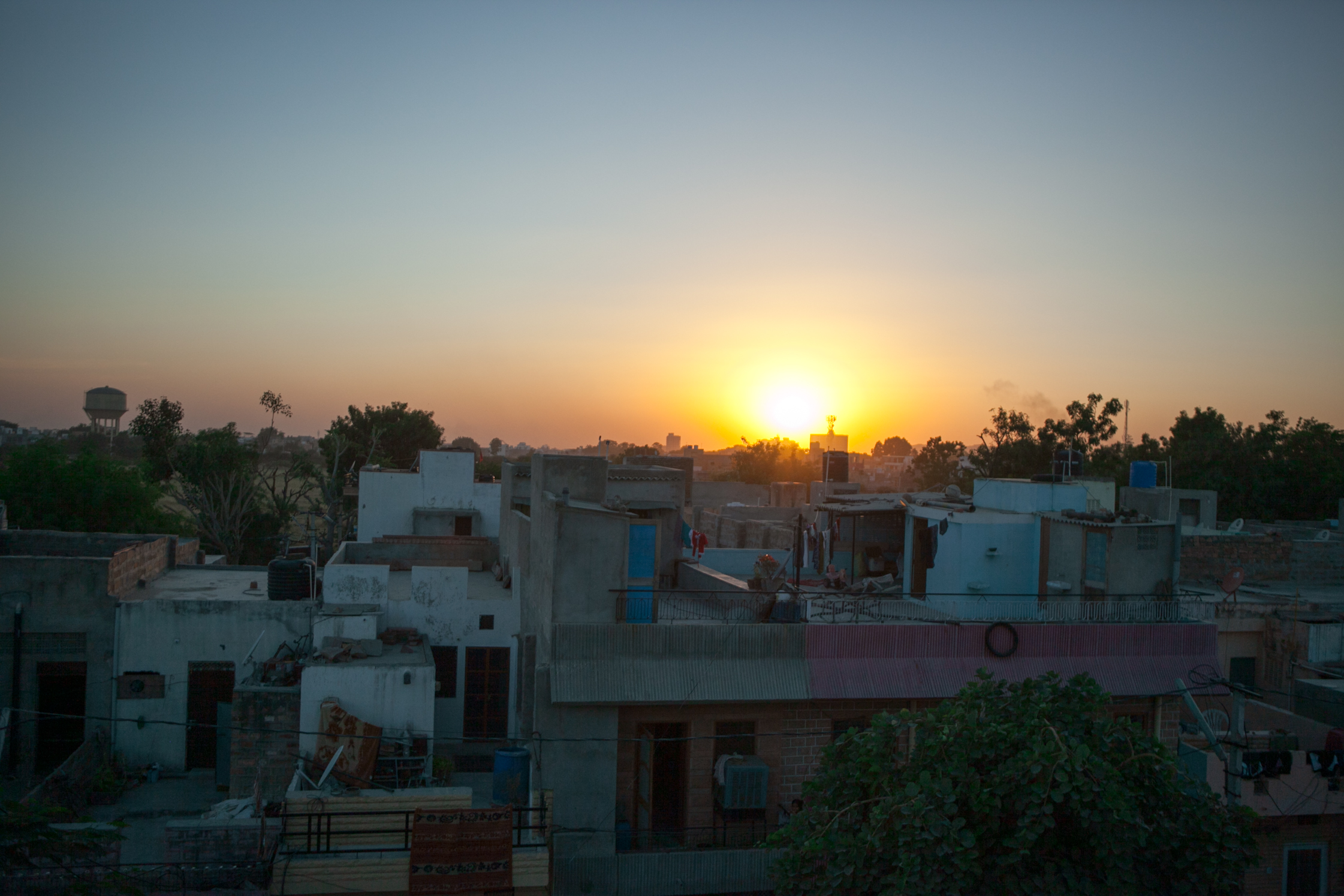
Nawab, thank you for this insightful discussion. For more stories coming from India, follow us to Bengaluru, New Delhi and Bagru and meet a few notable individuals. Look for all our video portraits here.
This portrait is part of our ongoing collaboration with ZEIT Online who presents a special curation of our pictures on ZEIT Magazin Online.
Video: FvF Productions
DoP: Andrew Kaineder
Director: Frederik Frede
Photos: Amy Tuxworth
Text: Shoko Wanger
